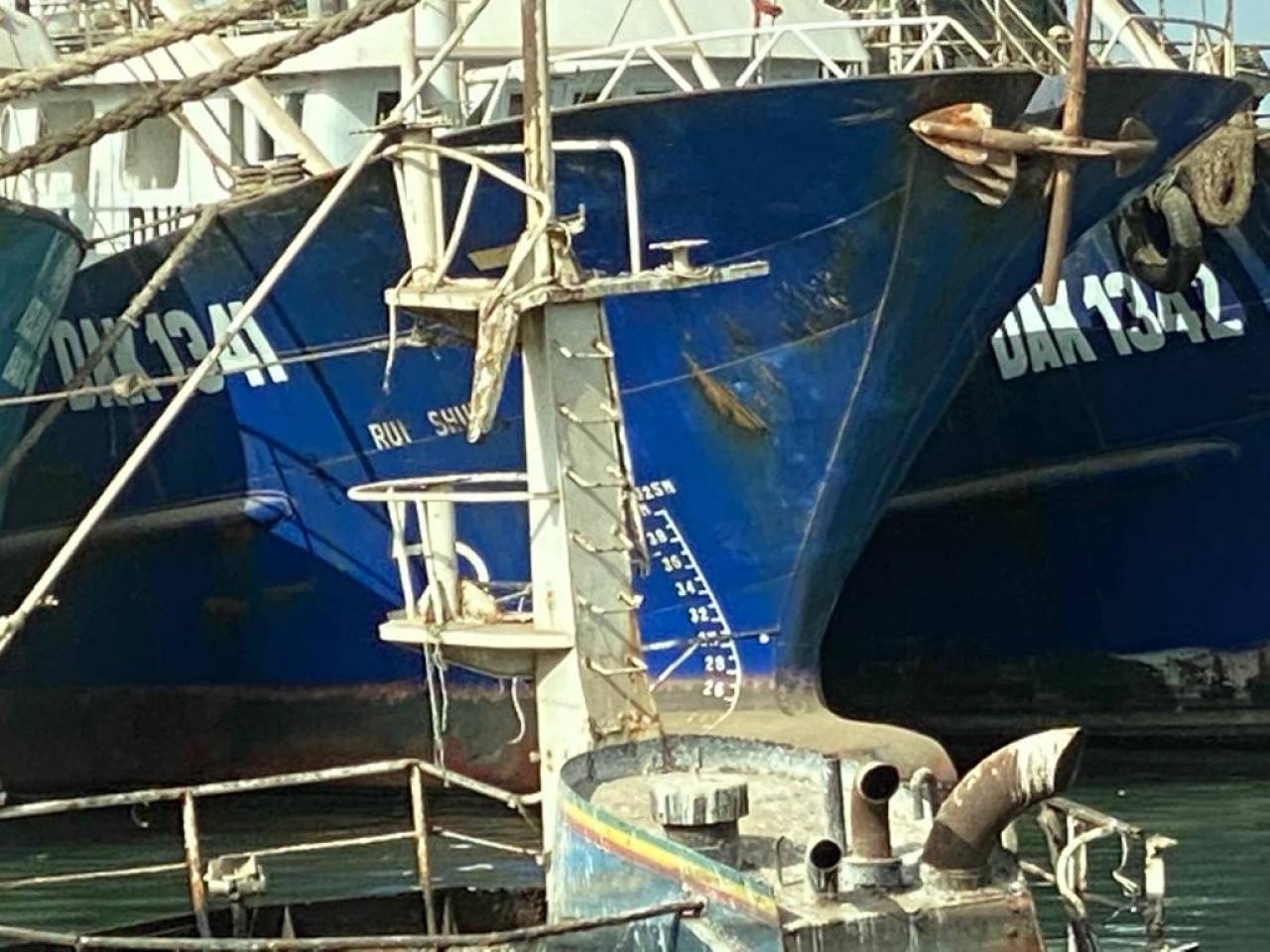Mr. Gaoussou Gueye, President of AFRIFISH-Net and CAOPA, is currently taking part in strategic meetings in Mombasa (Kenya) for the protection of aquatic biodiversity in Africa. On October 7 and 8, 2024, he took part in the Technical Committee Meeting of the “Conservation of Aquatic Biodiversity in the African Blue Economy” project, followed on October 9 by the 3ᵉ Steering Committee Meeting of the same project.
 On this occasion, Mr. Gueye delivered a statement on behalf of AFRIFISH-Net, CAOPA and AWFISH-Net, highlighting the importance of protecting aquatic biodiversity to strengthen the African blue economy. The events were organized by the African Union’s Inter-African Bureau for Animal Resources (AU-IBAR).
On this occasion, Mr. Gueye delivered a statement on behalf of AFRIFISH-Net, CAOPA and AWFISH-Net, highlighting the importance of protecting aquatic biodiversity to strengthen the African blue economy. The events were organized by the African Union’s Inter-African Bureau for Animal Resources (AU-IBAR).
These actions reaffirm the collective commitment to promote sustainable fisheries and preserve the vital resources of our oceans for future generations.
Please read the declaration
-
Update on Marine Spatial Planning (MSP)
The African Strategy for the Blue Economy has identified Marine Spatial Planning (MSP), which organizes activities in the coastal marine space among different actors in the blue economy, as a strategic activity to ensure the conservation of aquatic biodiversity.
It was noted that measures like these, aimed at conserving aquatic diversity, should include raising awareness among stakeholders.
For African artisanal fishing, a key sector for food security and job creation, it is crucial in any marine spatial planning process to secure the place of artisanal fishing and protect its activities from more powerful actors in the blue economy.
Indeed, today:
– Fishers are denied access to beaches privatized by hotels,
– Fishers are driven out of their traditional fishing zones by offshore oil and gas exploitation,
– Fishers compete with industrial fishing vessels that either take their nets or cause their boats to capsize,
– Women in our communities are evicted from the places they traditionally occupy to conduct their processing activities,
– Their access to fish as a raw material is also threatened by overexploitation of resources, fish meal processing industries, and others. 
It is essential that the African Union helps its members set up mechanisms, within the framework of Marine Spatial Planning, to ensure the security of land rights and access to fishery resources for both men and women in artisanal fishing communities, against the more powerful sectors of the blue economy.
In this regard, the monitoring of the presented project should organize national-level consultations in member countries with stakeholders, particularly artisanal fishing organizations, on the issue of Marine Spatial Planning.
A partnership could be established in this context with the national platforms of fishing stakeholders, set up under the aegis of the AU, to support the organization of these consultations as well as the wide dissemination of information.
-
Update on the 30×30 Commitment of African Countries for Marine Protected Areas
In our countries, artisanal fishing is essential not only for food security and employment but also for the conservation of biodiversity in coastal areas.
The first condition for inclusive management of marine and inland resources is to guarantee and protect artisanal fishers’ access to resources. An important tool to achieve this objective is the establishment of access zones reserved for artisanal fishing. This must be done in consultation with coastal communities. It is also essential to ensure that the management of 100% of these coastal marine and inland zones is carried out in consultation with the men, women, and youth of artisanal fishing communities.
Artisanal fishing communities have long been committed to biodiversity conservation. They maintain or restore local ecosystems and engage in community-based fisheries management for the benefit of local populations. As such, artisanal fishing is an ally of African Union member states in achieving their commitment to effectively conserve 30% of seas by 2030.
In many member countries, biodiversity conservation results from the establishment of zones reserved for artisanal fishing, co-managed by fishing communities and the Ministry of Fisheries. These zones should be recognized by our states as contributions to the goal of conserving 30% of marine areas by 2030.


